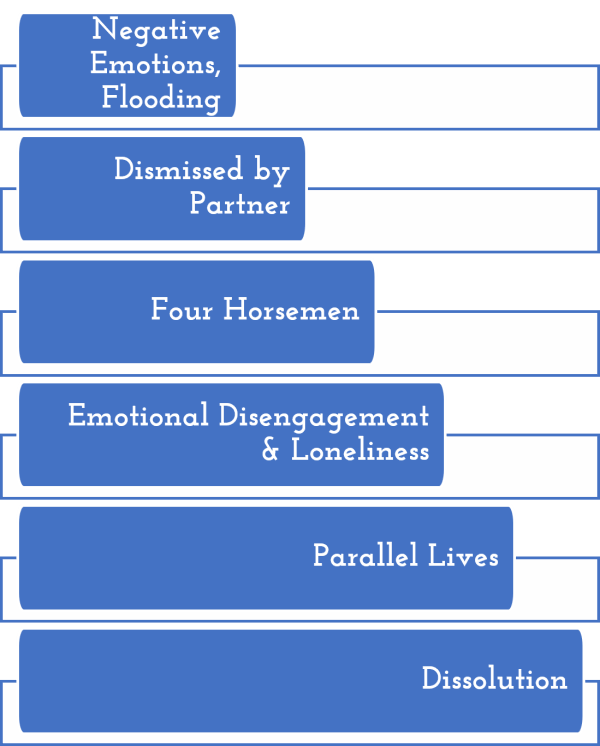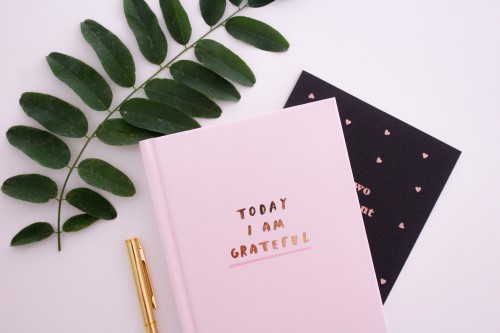
 The more couples are able to look for, and acknowledge, positive qualities and happenings in their relationship, the more trust and admiration is built in the relationship. One example of a benefit of this is demonstrated in a study that found that folks who took time to express gratitude for their partner felt more positive toward their partner, and this helped interrupt negative communication patterns in their relationship that resulted from stress. This is because fondness and admiration helps build a strong bond that makes it easier to weather the storms of life.
The more couples are able to look for, and acknowledge, positive qualities and happenings in their relationship, the more trust and admiration is built in the relationship. One example of a benefit of this is demonstrated in a study that found that folks who took time to express gratitude for their partner felt more positive toward their partner, and this helped interrupt negative communication patterns in their relationship that resulted from stress. This is because fondness and admiration helps build a strong bond that makes it easier to weather the storms of life.
So how can you create more of this? Here is a simple exercise. Look for ways to give appreciations, at least once a day, and make a point to share these with your partner. Here are some examples of what you can say when you notice something to appreciate:
- Thanks for being such a great mom/dad. (Give specifics)
- I really appreciate you being so affectionate lately. (Give specifics)
- Thanks for helping out with the dishes (or other task)!
- Taking a walk together was really nice.
- I want to thank you for the card and the great words on it.
- You look great in that.
- Thank you for caring about what I need.
- Thanks for making me feel like I come first in your life.
- I’m really proud of you. (Give specifics)
- Thanks for just being there when I needed to feel support.
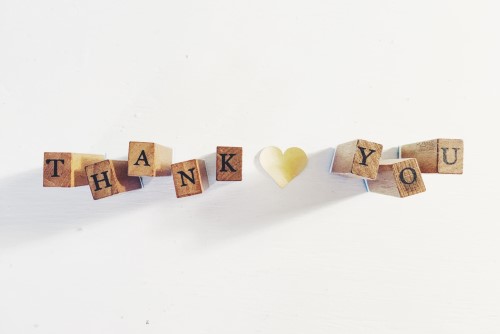

For more examples of how to give appreciations check out the Gottman Card Deck App and look for the give appreciation deck.
It is important to keep practicing! Gratitude helps us refocus on what we have instead of what we don’t have. Even though an exercise like this may feel a bit contrived at first, this “attitude of gratitude” grows stronger with use and practice and has great benefits for our relationship!
Get more like this straight to your inbox!
Plus our exclusive guide Things your mama never told you about talking dirty…
We know a few things about couples who have great sex lives. You may remember from a prior blog that couples who have good sex lives have good friendships — the two are linked! We know this from the research that has been done with couples. Take this quick quiz to see if your relationship has these ingredients for a great sex life.

 Put a check mark by each item that you can say “yes” to:
Put a check mark by each item that you can say “yes” to:
- Say “I love you” every day and meant it.
- Cuddle.
- Give each other compliments.
- Kiss one another passionately for no reason.
- Physically affectionate, even in public.
- Keep playing and having fun together.
- Make sex a priority, not the last item of a long to-do list.
- Take romantic vacations.
The more check marks you have, the more likely your sex life is healthy. If you don’t have a lot of check marks, this may be a clue that your sex life could be improved (you may already suspect this).

 What do you do if you want to see improvements? Look for ways to improve your friendship. For example, practice having intimate conversations and deeply listening to one another. Or making sure that you have meaningful time that you spend with each other on a consistent basis (even in small moments) every day, every week, and throughout the year.
What do you do if you want to see improvements? Look for ways to improve your friendship. For example, practice having intimate conversations and deeply listening to one another. Or making sure that you have meaningful time that you spend with each other on a consistent basis (even in small moments) every day, every week, and throughout the year.
Don’t wait to make improvements! And if you need some help, don’t be afraid to take action. Download the free Gottman Card Decks app and give it a try for great tips on conversations to have and how to have them. You can look into taking a couple’s workshop, such as The Art & Science of Love, or consider couples counseling. Great friendships and great romance and passion take a bit of work. Your relationship is worth it!
Get more like this straight to your inbox!
Plus our exclusive guide Things your mama never told you about talking dirty…
One of the wonderful gifts we can give to one another in relationships is the gift of being a great listener. Good listening creates intimate conversation, trust, and love! How can we practice this? I have found it helpful to give couples straightforward exercises to help them learn how to do this.
Here is one: Take turns asking your partner the following questions. Then use the following short lists for specific things you can ask or say to help you learn to be a great listener.

Tell me what in this world is currently making you: 1) angry; 2) sad; 3) afraid or worried; 4) hopeful; 5) happy; 6) stressed.
Questions You Can Ask As You Listen:
- How did all this begin, what was the very start?
- Do these feelings and needs have any spiritual, moral, ethical, or religious meaning for you?
- Who are the main characters in these feelings?
- How are you thinking about how all of this fits into your life as a whole?
Statements to Explore Feelings and Needs As You Listen:
- Help me understand your feelings a little better. Say more.
- If you could change the attitudes of one of the key people in this situation, talk about what you would do.
- Help me understand this situation from your point of view. What are the most important points for you?
Expressing Empathy and Understanding As You Listen:
- You’re making total sense.
- I understand how you feel.
- I wish I could have been with you in that moment.
- I see. Let me summarize: What you’re thinking/feeling here is…
- Wow! That must have (hurt; made you feel angry; been a relief; etc.).
- No wonder you’re upset.
- That would make me feel (hurt; angry; upset; sad; happy; relieved; insecure; etc.).

The goal here is just to understand. Remember to avoid being critical, judgmental, defensive, and don’t engage in put downs or superiority (there are prior blogs on the Four Horsemen and how to avoid them).
These are great conversations to plan to have, perhaps once a week to practice listening to one another. Give it a try!
Get more like this straight to your inbox!
Plus our exclusive guide Things your mama never told you about talking dirty…
We all want more intimacy in our relationships, since feeling close leads to more good things in our life (like romance, passion, and sexual intimacy). One way to do this is to be intentional about creating shared meaning in our relationship. Here are four easy steps to build more of this into our relationship:
- Have a conversation about how you can support one another in your central life roles (mom, dad, son, daughter, brother, sister, friend, worker, etc.). Take turns listening and speaking about this, interviewing your partner as if you were a reporter gathering information (it is helpful to take notes!).

- In the same way, have another conversation about how to support one another in your central values and symbols (e.g., what is “home"?, what does “love” mean to you?, what does “family” meant to you?). This can be several conversations. Take your time and explore with one another what each means.
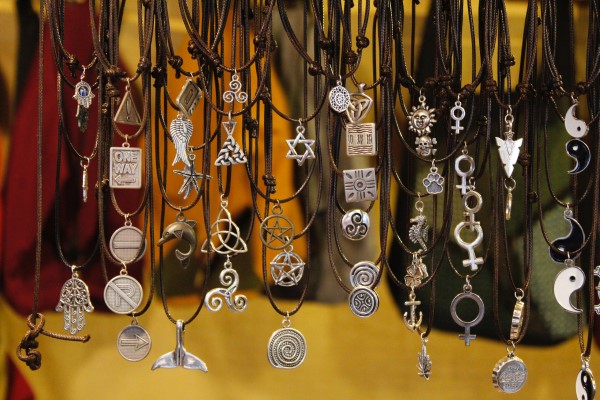
- Think about what it means to live ethically in the world. What might it mean to do this together as a couple? After talking about this, decide on one way you will do so, intentionally, together.

- I like the concept of Tikkun Olam, which is Hebrew for making the world a better place because of your life. What might it look like to work on this as a couple? What legacy would you like to build together?

These are great conversations to have on a date night! Or perhaps have an evening a week when you both know you will talk about one of these things — come prepared with some pre-pondering done to share with one another. When we know each other more deeply and feel supported in important ways, good things will happen in our relationship!
Get more like this straight to your inbox!
Plus our exclusive guide Things your mama never told you about talking dirty…

 Loneliness has been discussed recently as a major problem, not just for our society, but for our health. It is a predictor of premature death and is a bigger risk factor than obesity in this regard; it is the equivalent of smoking up to 15 cigarettes a day (according to Julianne Holt-Lunstad at Brigham Young University). Those of you who are married will know that being married does not protect you from loneliness. 43% of adults who participated in a 2012 study, which followed 1,600 adults over 60 for six years, reported loneliness, and more than half were married. Why is this, and what can be done?
Loneliness has been discussed recently as a major problem, not just for our society, but for our health. It is a predictor of premature death and is a bigger risk factor than obesity in this regard; it is the equivalent of smoking up to 15 cigarettes a day (according to Julianne Holt-Lunstad at Brigham Young University). Those of you who are married will know that being married does not protect you from loneliness. 43% of adults who participated in a 2012 study, which followed 1,600 adults over 60 for six years, reported loneliness, and more than half were married. Why is this, and what can be done?
The research done by Dr. John Gottman on marriage and relationships, both the ones that are healthy and the ones that are not, sheds some light on this. What we have discovered is that couples who begin to have trouble enter into what we call a Distance and Isolation Cascade as is shown in the following diagram:
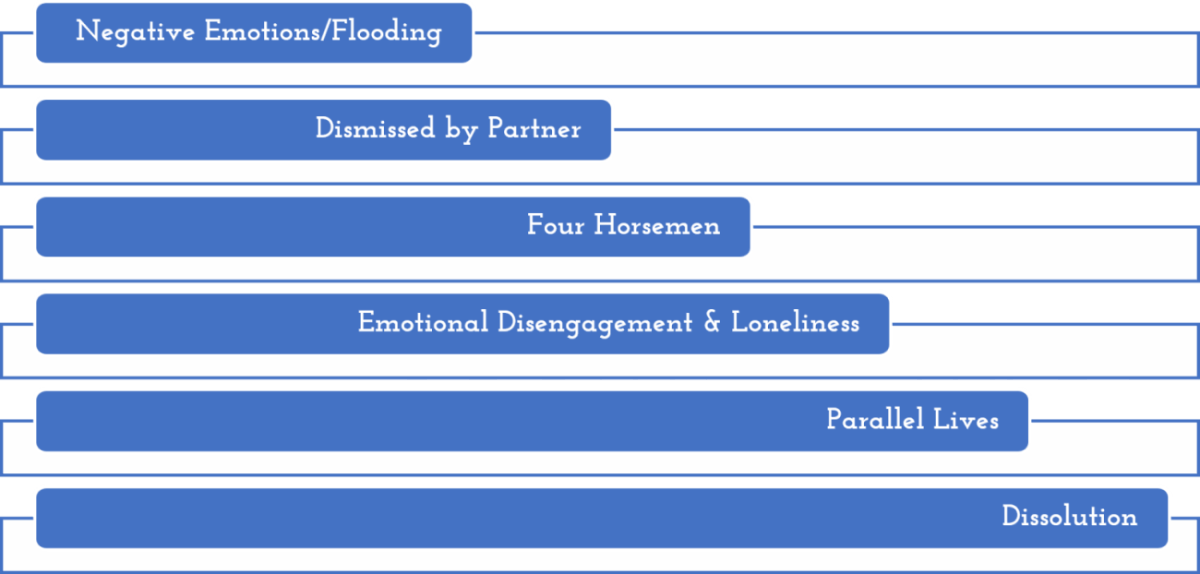
When couples are not able to nurture intimacy and manage conflict in such a way as to use conflict as a path to closeness they can enter into this Cascade of negativity/flooding, feeling dismissed, use of the Four Horsemen in conflict discussions (criticism, defensiveness, contempt and stonewalling), and then can enter emotional disengagement and loneliness in the marriage, which eventually leads to parallel lives (roommates, at best) and then divorce. What we have learned from successful couples is how to avoid this cascade through staying connected in our everyday lives, talking about differences and irritations in gentle ways, and repairing interactions when they go imperfectly. What is encouraging is that these skills are what every day folks can use, not just in our long-term relationships, but in every important relationship we have as an antidote to loneliness and disconnection.
For more information on how to learn these skills, check out upcoming dates for couple’s workshops or set up a time to discuss one on one how to learn these skills for yourself.
Get more like this straight to your inbox!
Plus our exclusive guide Things your mama never told you about talking dirty…
Stay up to date with relationship tips and more
Plus our exclusive guide Things your mama never told you about talking dirty…

